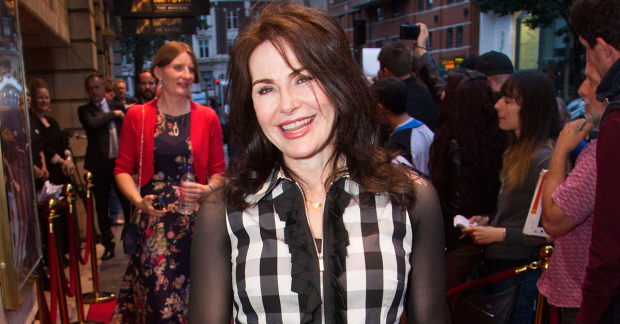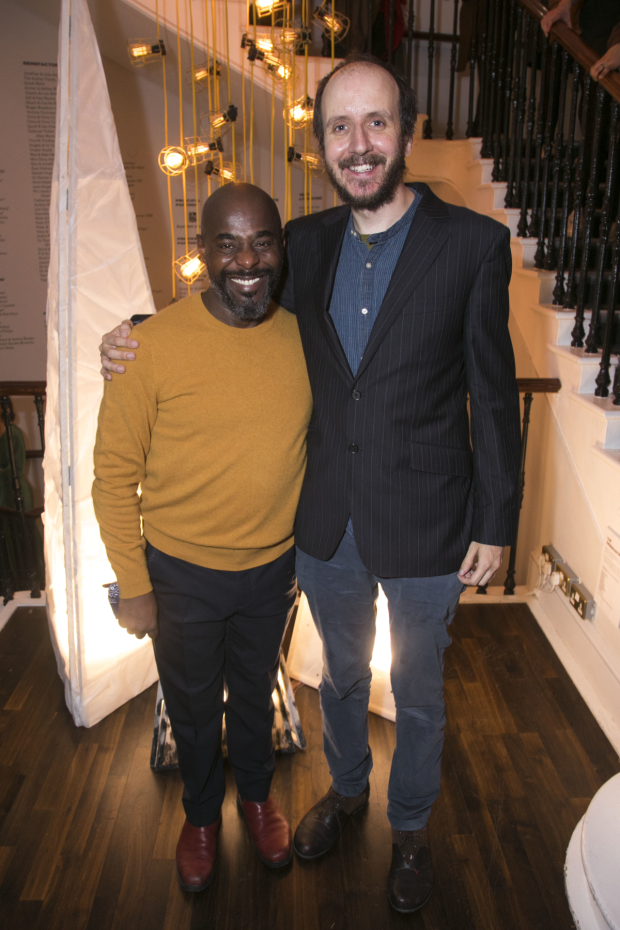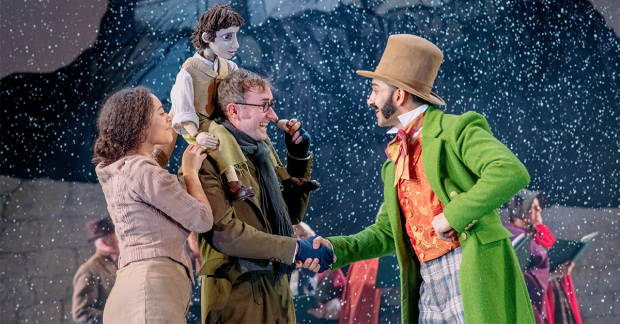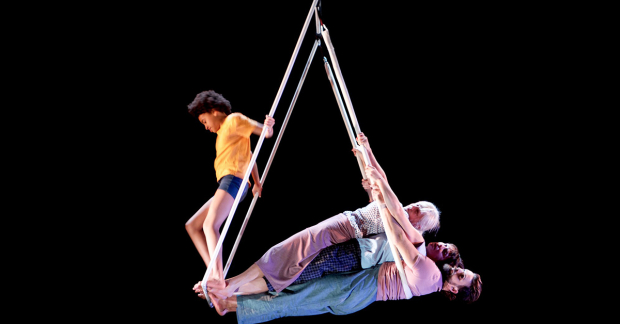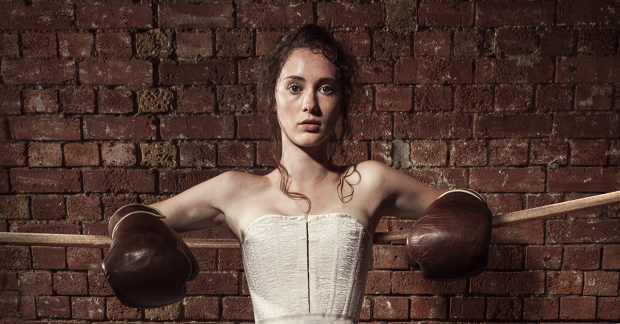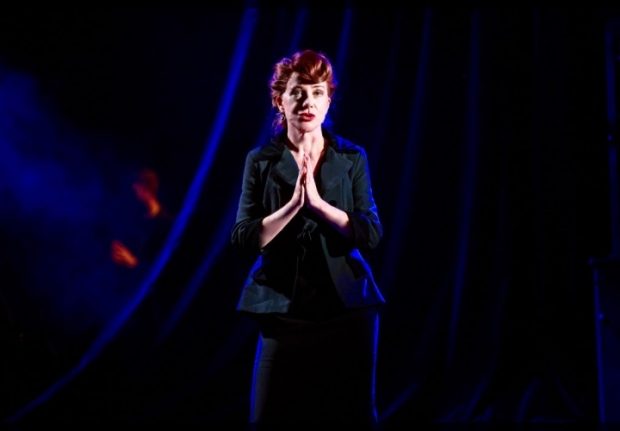Review: Christmas Carol – a fairy tale (Wilton's Music Hall)
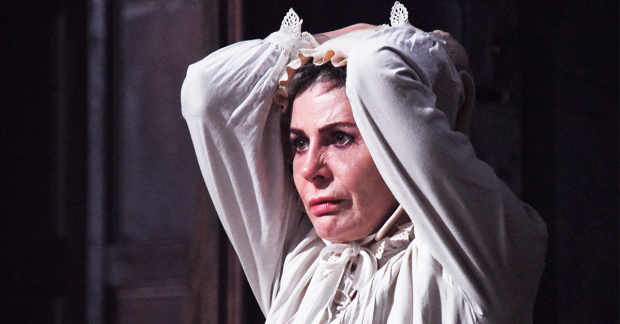
© Nobby Clark
The faded mid-Victorian splendour of Wiltons's atmospheric auditorium seems to be the perfect location for yet another stage adaptation of Charles Dickens' melancholic, festive novella. There are indeed moments in Stephanie Street's fast-moving, inventive production when the story seems not so much staged as permitted to randomly, organically burst from out of the Music Hall's peeling walls or through its wooden slatted floor.
The surprise is that what Piers Torday has created isn't a straightforward version of Dickens' done-to-death tale but rather an intelligent, compelling riff on it. The most immediately obvious divergence from the source material is making the central figure a woman; but instead of simply presenting a female Ebenezer, Torday confounds expectations further by making this Scrooge the sister of the character we all know so well. Dickens' Fan Scrooge is a minor figure who dies prematurely, contributing to her brother's grief-stricken misanthropy. However, Torday's version is an embittered protofeminist, widow of Jacob Marley and hard-as-nails inheritor of his money lending business.
A significant advantage to having a female Scrooge is that we get a star performance from Sally Dexter, one of this country's most exciting theatre actresses, but currently best known to many people for her recurring role on Emmerdale. Dexter's fascinating Fan Marley is, at first, uncompromisingly bleak with a sardonic edge (note the mixture of disbelief and casual cruelty with which she belittles the hapless clerk who gives her a copy of Friedrich Engels's The Condition Of The Working Class In England as a Christmas gift). She's heartbreaking to watch, as she observes her younger self enjoying happier Christmases, then very funny when squaring up and bellowing "I want a divorce!" to the chained-up apparition of her unmourned late husband (a superb Brendan Hooper). Her ultimate transformation into a manically athletic philanthropist is utterly convincing and very moving. She is magnificent and strangely haunting, a performance that ingeniously combines clear-eyed truth with barn-storming theatricality: it's impossible to take your eyes off her.
Some purists may baulk a bit at this audacious liberty with an iconic character, but having a female protagonist pays other real dividends: it encourages the play to legitimately examine the constraints and horrors of Victorian womanhood and to make comparisons with our own, hopefully more enlightened, times. In doing so, the plight of the homeless and poverty-stricken, and the fact that this has changed lamentably little across the centuries, is thrown into forensically sharp relief. Even the Yuletide joy at the conclusion is brought up short by the presence just outside the window – always yearningly watching the feast but never participating in it – of the omnipresent hungry, half-frozen urchins Ignorance and Want (beautifully played by Joseph Hardy and Chisara Agor). Torday and Street make the potent point that present-day equivalents to these wraiths are sleeping rough just metres from us, sitting cosy in our theatre seats.
This makes the show sound a bit worthy but the Christmas miracle of it all is that it's still tremendously good fun. Torday's text has a whip crack wit – particularly inspired is an achingly right-on, touchy-feely Ghost of Christmas Present (brilliant Edward Harrison) endlessly banging on about turmeric lattes and unpacking feelings. Street's deliriously inventive staging delights in the possibilities of theatre, lit with atmospheric flair by Katharine Williams. Tom Piper's dark-wooded, broken window design is so perfectly in tune with the venue that it is sometimes difficult to see where one ends and the other starts. Jo Lakin's puppets are a wonder, especially the astonishingly beautiful feline narrator Meagre, voiced with the just the right level of supercilious knowingness by Yana Penrose.
Ruth Ollman's good-hearted niece and her talkative lap dog (another glorious Lakin puppet) are other vivid creations in a rich gallery that feels at once familiar yet breathtakingly new-minted. Ollman also cleverly morphs into the Ghost Of Christmas Future, an all-too-recognisable modern woman struggling to be all things to all people in an increasingly demanding world.
Thought-provoking but never to the detriment of Dickens' original message, this is a Christmas Carol that both embraces its historical context but speaks urgently to our time. It's also a cracking piece of theatre featuring one of the finest performances of the year. Wilton's may have found itself a perennial crowd pleaser.



